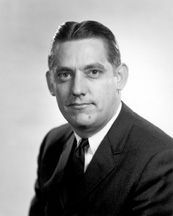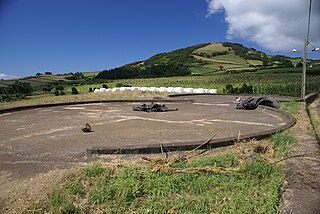Chaffing and winnowing is a cryptographic technique to achieve confidentiality without using encryption when sending data over an insecure channel. The name is derived from agriculture: after grain has been harvested and threshed, it remains mixed together with inedible fibrous chaff. The chaff and grain are then separated by winnowing, and the chaff is discarded. The cryptographic technique was conceived by Ron Rivest and published in an on-line article on 18 March 1998. Although it bears similarities to both traditional encryption and steganography, it cannot be classified under either category.

Wind winnowing is an agricultural method developed by ancient cultures for separating grain from straw. It can also be used to remove pests from stored grain. Winnowing usually follows threshing in grain preparation.

Chaff is the dry, scaly protective casing of the seeds of cereal grains, or similar fine, dry, scaly plant material such as scaly parts of flowers, or finely chopped straw. Chaff is indigestible by humans, but livestock can eat it and in agriculture it is used as livestock fodder, or is a waste material ploughed into the soil or burned.

Wilson's snipe is a small, stocky shorebird. The genus name gallinago is New Latin for a woodcock or snipe from Latin gallina, "hen" and the suffix -ago, "resembling". The specific delicata is Latin for "dainty".

Fred Roy Harris is a former Democratic United States Senator from the state of Oklahoma.

Threshing is the process of loosening the edible part of grain from the chaff to which it is attached. It is the step in grain preparation after reaping. Threshing does not remove the bran from the grain.

Louis Camilleri is CEO of Ferrari and chairman of Philip Morris International.
The Winnowing Oar is an object that appears in Books XI and XXIII of Homer's Odyssey. In the epic, Odysseus is instructed by Tiresias to take an oar from his ship and to walk inland until he finds a "land that knows nothing of the sea", where the oar would be mistaken for a winnowing fan. At this point, he is to offer a sacrifice to Poseidon, and then at last his journeys would be over.

Matthew 3:12 is the twelfth verse of the third chapter of the Gospel of Matthew in the New Testament. The verse occurs in the section relating the preachings of John the Baptist. In this he uses the imagery of harvesting wheat to describe God's judgement.

Threshing (thrashing) was originally "...'to tramp or stamp heavily with the feet'..." and was later applied to the act of separating out grain by the feet of people or oxen and still later with the use of a flail. A threshing floor is of two main types: 1) a specially flattened outdoor surface, usually circular and paved, or 2) inside a building with a smooth floor of earth, stone or wood where a farmer would thresh the grain harvest and then winnow it. Animal and steam powered threshing machines from the nineteenth century onward made threshing floors obsolete. The outdoor threshing floor was either owned by the entire village or by a single family, and it was usually located outside the village in a place exposed to the wind.

Bush bread, or seedcakes, refers to the bread made by Australian Aboriginals, by crushing seeds into a dough, after which it is baked. The bread was high in protein and carbohydrate, and helped form part of a balanced traditional diet.

St Winnow is a civil parish in Cornwall, England, United Kingdom. Its name may be connected with either that of Saint Winnoc or Saint Winwaloe. It has a population of 304, which had increased to 328 at the 2011 census. The church town is on the east bank of the River Fowey south of Lostwithiel. Part of the village of Lerryn lies within the parish as does the Chapel of St Nectan. The Redlake Meadows & Hoggs Moor, a Site of Special Scientific Interest is also in the parish.

Winnowing barns were commonly found in South Carolina on antebellum rice plantations. A winnowing barn consists of a large shed on tall posts with a hole in the floor. Raw, husked rice was carried up into the barn by slaves and then the grain was dropped through the hole. As the grain dropped to the ground, the lighter and undesirable chaff was carried away in the wind, leaving a mound of purified rice grains directly below the winnowing barn. The purified grain was then packed into barrels and carried down river to port cities for distribution.
The winnow algorithm is a technique from machine learning for learning a linear classifier from labeled examples. It is very similar to the perceptron algorithm. However, the perceptron algorithm uses an additive weight-update scheme, while Winnow uses a multiplicative scheme that allows it to perform much better when many dimensions are irrelevant. It is a simple algorithm that scales well to high-dimensional data. During training, Winnow is shown a sequence of positive and negative examples. From these it learns a decision hyperplane that can then be used to label novel examples as positive or negative. The algorithm can also be used in the online learning setting, where the learning and the classification phase are not clearly separated.
winnowTag is a web-based recommender system and news aggregator in which a person tags example items as belonging to a topic, thus training statistical text classification software to find more items on that same topic. Released as a publicly available web application in September 2010 by Mindloom, winnowTag uses Winnow content recommendation, a Naive Bayes text classifier evolved from SpamBayes.

Sifting and winnowing is a metaphor for the academic pursuit of truth affiliated with the University of Wisconsin–Madison. It was coined by UW President Charles Kendall Adams in an 1894 final report from a committee exonerating economics professor Richard T. Ely of censurable charges from state education superintendent Oliver Elwin Wells. The phrase became a local byword for the tenet of academic freedom.

Science Advances is a peer-reviewed multidisciplinary open-access scientific journal established in early 2015 and published by the American Association for the Advancement of Science. The journal's scope includes all areas of science, including life sciences, physical sciences, social sciences, computer sciences, and environmental sciences.
The Winnower is a publishing platform and journal that offers traditional scholarly publishing tools to enable rigorous scholastic discussion of topics across all areas of intellectual inquiry, whether in the sciences, humanities, public policy, or otherwise. The Winnower currently publishes and archives the following:












